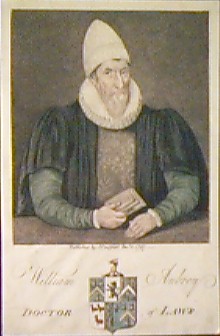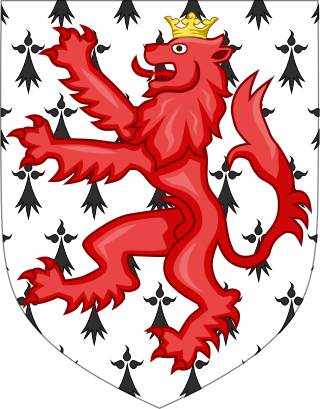Politics
Around 1555, he was official of the archdeaconry of Berkshire, chancellor to Stephen Gardiner, bishop of Winchester, with whom he was in favour, and a master in chancery.
Martin took a conspicuous part in the proceedings against Bishop Hooper, Rowland Taylor, John Taylor, alias Cardmaker, and John Careless. In the prosecution against Archbishop Cranmer he was effective in bringing out the oaths Cranmer swore in 1533. [4] It appears that he interfered to procure the discharge of Robert Horneby, the groom of the chamber to Princess Elizabeth, who had been committed to the Marshalsea for refusing to hear mass. In May and June 1555 he was at Calais, apparently in attendance on Bishop Gardiner, then lord chancellor. In July 1556 he was one of the masters of requests, and he was employed with Sir Roger Cholmeley to examine Silvester Taverner on a charge of embezzling the queen's plate. They were empowered to put him to such tortures as by their discretion should be thought convenient.
In June 1557 he was one of the council of the north, and in the following month a commissioner with the Earl of Westmorland, Bishop Cuthbert Tunstall, and Robert Hyndmer, LL.D., for the settlement of certain differences between England and Scotland, which had been occasioned by the inroads of the Grahams and others. On 13 May 1558 he and others were authorised to bring to the torture, if they should so think good, one French, a prisoner in the Tower of London.
He was vilified in particular by John Bale, and after the accession of Queen Elizabeth he kept a low profile. In 1587 he was incorporated doctor of the civil law at Cambridge. [3] Commissions to him and other civilians to hear admiralty cases were issued in 1591 and 1592.
Relationship with the crown
His treatise against the marriage of priests and monks, finished in 1553 with the assistance, it is said, of Nicholas Udall, was esteemed by Queen Mary, to whom it was dedicated; she granted him a commission to make Frenchmen and Dutchmen free denizens, and this he executed with such success in the spring of 1554 that he made himself a gentleman. He was incorporated D.C.L. at Oxford 29 July 1555, when he was sent there as one of the queen's commissioners.
In September 1556 it was intended that he should succeed Nicholas Wotton as ambassador at the French court; but in the following month he was despatched by the privy council to Philip II of Spain at Ghent, concerning the contemplated marriage of the Duke of Savoy to the Princess Elizabeth, and also with respect to the trade between England and the States of the Low Countries. The king sent him to the States to treat with them on the latter subject.
During Mary's reign he was Member of Parliament, for Saltash and for Hindon, several times. [3]

Sir John Cheke (or Cheek) (16 June 1514 – 13 September 1557) was an English classical scholar and statesman. One of the foremost teachers of his age, and the first Regius Professor of Greek at the University of Cambridge, he played a great part in the revival of Greek learning in England. He was tutor to Prince Edward, the future King Edward VI, and also sometimes to Princess Elizabeth. Of strongly Reformist sympathy in religious affairs, his public career as provost of King's College, Cambridge, Member of Parliament and briefly as Secretary of State during King Edward's reign was brought to a close by the accession of Queen Mary in 1553. He went into voluntary exile abroad, at first under royal licence (which he overstayed). He was captured and imprisoned in 1556, and recanted his faith to avoid death by burning. He died not long afterward, reportedly regretting his decision.

John Feckenham, also known as John Howman of Feckingham and later John de Feckenham or John Fecknam, was an English churchman, the last abbot of Westminster.
Thomas Thirlby, was the first and only bishop of Westminster (1540–50), and afterwards successively bishop of Norwich (1550–54) and bishop of Ely (1554–59). While he acquiesced in the Henrician schism, with its rejection in principle of the Roman papacy, he remained otherwise loyal to the doctrine of the Roman Catholic Church during the English Reformation.
Thomas Watson was a Catholic Bishop, notable among Catholics for his descriptions of the Protestant Reformation. Historian Albert Pollard described Watson as "one of the chief Catholic controversialists" of Mary Tudor's reign.
John Ponet, sometimes spelled John Poynet, was an English Protestant churchman and controversial writer, the bishop of Winchester and Marian exile. He is now best known as a resistance theorist who made a sustained attack on the divine right of kings.
Sir Edward Saunders was an English judge and Chief Justice of the Queen's Bench.
Events from the 1550s in England. This decade marks the beginning of the Elizabethan era.

William Aubrey was Regius Professor of Civil Law at the University of Oxford from 1553 to 1559, and was one of the founding Fellows of Jesus College, Oxford. He was also a Member of Parliament for various Welsh and English constituencies between 1554 and 1592.
Thomas Sedgwick (Segiswycke) was an English Roman Catholic theologian. An unfriendly hand in 1562 describes him as "learned but not very wise".
Henry Cole was a senior English Roman Catholic churchman and academic.
John White was a Headmaster and Warden of Winchester College during the English Reformation who, remaining staunchly Roman Catholic in duty to his mentor Stephen Gardiner, became Bishop of Lincoln and finally Bishop of Winchester during the reign of Queen Mary. For several years he led the college successfully through very difficult circumstances. A capable if somewhat scholastic composer of Latin verse, he embraced the rule of Philip and Mary enthusiastically and vigorously opposed the Reformation theology.

John Young (1514–1580) was an English Catholic clergyman and academic. He was Master of Pembroke Hall, Cambridge, and was later imprisoned by Elizabeth I. He is not John Young (1534?–1605), Master of Pembroke Hall later in the century, and afterwards Bishop of Rochester.
Hugh Weston was an English churchman and academic, Dean of Westminster and Dean of Windsor, and Rector of Lincoln College, Oxford.

James Turberville was an English cleric who served as Bishop of Exeter from 1555 to 1559.

Sir John Tregonwell was a Cornish jurist, a principal agent of Henry VIII and Thomas Cromwell in the Dissolution of the Monasteries. He served as Judge of the High Court of Admiralty from 1524 to 1536.

James Basset (1526–1558) was a gentleman from the ancient Devonshire Basset family who became a servant of Stephen Gardiner, Bishop of Winchester, by whom he was nominated MP for Taunton in 1553, for Downton in 1554, both episcopal boroughs. He also served thrice as MP for Devon in 1554, 1555, and 1558. He was a strong adherent to the Catholic faith during the Reformation started by King Henry VIII. After the death of King Edward VI in 1553 and the accession of the Catholic Queen Mary I, he became a courtier to that queen as a gentleman of the Privy Chamber and received many favours from both herself and her consort King Philip II of Spain.

Sir Giles Strangways, of Melbury Sampford, Dorset, was five times MP for Dorset in 1553, 1554, 1555, 1558 and 1559.
Anthony Hussey, Esquire, was an English merchant and lawyer who was President Judge of the High Court of Admiralty under Henry VIII, before becoming Principal Registrar to the Archbishops of Canterbury from early in the term of Archbishop Cranmer, through the restored Catholic primacy of Cardinal Pole, and into the first months of Archbishop Parker's incumbency, taking a formal part in the latter's consecration. The official registers of these leading figures of the English Reformation period were compiled by him. While sustaining this role, with that of Proctor of the Court of the Arches and other related ecclesiastical offices as a Notary public, he acted abroad as agent and factor for Nicholas Wotton.
John Seton D.D. was an English Roman Catholic priest, known as the author of a standard logic text.







